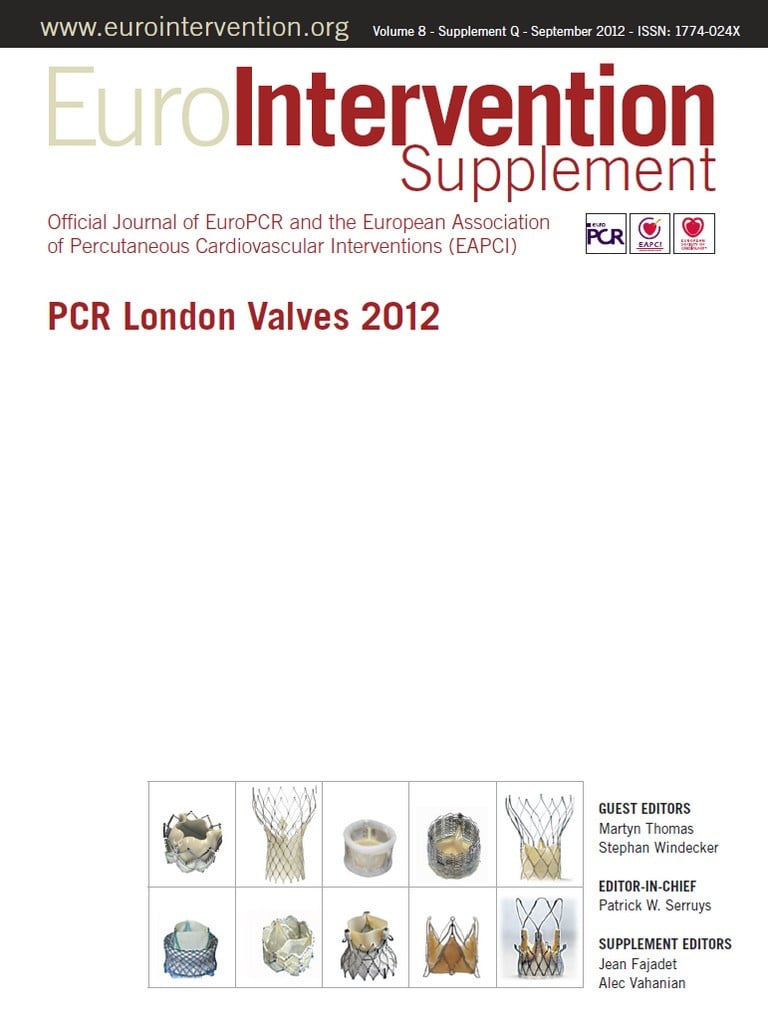In the history of EuroIntervention the official journal of the European Association of Percutaneous Cardiovascular Interventions (EAPCI), there have been many special editions focusing on critical issues or breaking technologies. They have included, to mention only a few, such topics as bifurcations, bioresorbable stents or drug-eluting balloons, as well as, the most recent, a supplement dedicated to the Stent for Life Initiative which was published and distributed during the recent ESC Congress in Munich. What is common to all these publications, and what allows them to remain, for the most part, valid reference works well after they have originally appeared, is their concentration on a particular topic, bringing together state-of-the-art discussions by recognised international experts on a specific technique. The goal of a supplement is not the same as the regular issue; here we concentrate on one subject, and by doing so create a valuable pedagogic and informational source. The time to focus –in this way– on the percutaneous treatment of valve disease has clearly arrived, its acceptance is no longer experimental, its use is widespread, and emerging new data, experience and techniques call for a reference document. This is the role of the current supplement.
The evolution in the acceptance and treatment of valves and structural heart disease percutaneously has been rapid. It is essential that we ensure in a practical and informative way that interventional cardiologists remain abreast of these many developments. When a treatment evolves rapidly, when the interest in its use grows with each day, it is imperative both for our own individual practice and to ensure that the patient receives the best possible care that we remain informed and knowledgeable of these latest developments. This is the role of the EAPCI, to guarantee that our members –and all those interested in interventional cardiology– have access to the very best material and methods available today in these cutting-edge techniques. We can only underline what has become evident, that in PCR London Valves we have found the fundamental and wide-reaching course dedicated to TAVI and structural heart disease that answers to these demands. It is little wonder that we have decided to make PCR London Valves an official EAPCI meeting.
Martyn Thomas, who has led this meeting since its inception three years ago, is joined this year by Stephan Windecker and together they have made every effort to construct a course that will touch – in depth and from a practical and interactive fashion – the key issues affecting our work in this “speciality in a speciality”. PCR London Valves exemplifies the multidisciplinary approach we promote, echoing our evolving commitment to the collaborative work of the “Heart Team”. The active and vital presence of the European Association for Cardio-Thoracic Surgery (EACTS), represented by Volkmar Falk as course Co-Director, is critical in ensuring the quality and breadth of PCR London Valves as well. Besides myself as President of the EAPCI, the presence of Stephan Windecker as our President-Elect spotlights the continuity of our Association’s commitment to PCR London Valves as well as to all the other educational projects we undertake or are in the process of creating.
It has become increasingly evident to us as an association that we cannot simply be present at meetings, but must instead act as a “motor”, using the experience we have gained in courses such as EuroPCR where we play a central and leading role in the construction of these scientific meetings themselves. This role goes beyond our work as healthcare practitioners and specialists, encompassing our experience as educators, bringing to bear the tested methods of EuroPCR and the entire PCR Family.
This year, our experience has resulted in the PCR-EAPCI Percutaneous Interventional Cardiovascular Medicine Textbook, which has quickly become a benchmark reference worldwide. It has also resulted in the programme of PCR London Valves, complete with its live transmissions, Live in-a-box®, with its interactive analysis of clinical cases, its data presentations, its “top of the wave” introduction of new devices, technologies and techniques and, for the first time this year, abstract sessions. In the tradition of the Textbook, and in the tradition of EuroIntervention itself –the official publication of the EAPCI– PCR London Valves will be accompanied this year by this special dedicated supplement, a compendium of the various aspects of the course itself. It will act as a printed memory of the course, and for those of you who unfortunately cannot attend, it will provide a working record of what was communicated and taught. The very best experts who are participating in the meeting itself are present in this supplement.
PCR London Valves as an official course of our association has become an integral part of what we are and what we want to accomplish for our speciality. It is with great pride that we join with them as an association to participate in this landmark event in interventional cardiology.

